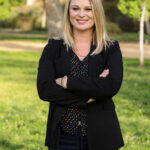Forgiveness of big bills, new water rates on agenda
The Idyllwild Water District held a special workshop last week to discuss changes to its water and sewer policies, as well as possible water-rate changes.
The Ad Hoc Committee on Rules and Water Regulations, composed of directors Geoffrey Caine and Steve Kunkle, has been working on revising Ordinance 64 and other rules for several weeks.
At this point, they had several issues, which could move in different directions, and they sought some feedback from their board colleagues. With these opinions and after another meeting or more, the committee will bring a revised ordinance and a new rate proposal back to the whole IWD board at a future meeting.
Forgiveness of a large bill was one of the issues the board discussed. Acting General Manager Jack Hoagland said the committee was seeking thoughts about what kind of criteria might be used to allow forgiveness of a bill.
IWD does not currently have a policy permitting the it to forgive or waive some or all of an exceedingly large bill. Some districts do have such a policy, according to Hoagland. While it typically does not forgive the entirety of the bill, it will lower the rate to a less expensive tier. Part of the decision would include how often forgiveness might be granted and what are the criteria.
“Many customers are second homeowners and our advice is turn off the water when you leave the Hill,” Hoagland stressed. “Also, if you don’t repair your plumbing, why should everyone else pay for the water used or lost?”
He also added that a total forgiveness would be “giving away public funds.”
Caine suggested that once every four years might be a fair effort to reduce the cost and “… alleviate a hardship without costing the board too much.”
Another issue was the possibility of a water customer collecting and re-selling their water to third parties. This is another issue, which the current rules do not address, according to Hoagland. He added that if the customer has a private well, the regulation would not apply to that water.
Director Peter Szabadi suggested that, since the district has no limit on water use, as long as the customer pays for the water consumed the use might not matter. But Caine replied, “It doesn’t seem right to make a profit off the district’s water.”
“We’re just out of a drought, why sell a precious commodity?” asked Director Vic Sirkin. “If they want to sell to a third party, come to the board and make a request.”
Hoagland reported that the committee was inclined to delete language in the water rules referring to equivalent dwelling units and, therefore, eliminate the number of EDUs in calculating a new connection fee.
Some of the other water issues included a shortening of the period for assessing a late fee and dropping the fee for changing the ownership of a district property.
Water rates
A heated exchange ensued between Sirkin and Hoagland about the possible changes in water-rate calculation. Hoagland maintained that the size of the meter should affect the individual’s monthly rate.
The size of the meter imposes responsibility on the district to provide for larger volume and adequate pressure. The larger meters are becoming more common with new construction complying with fire-sprinkler regulations.
Sirkin countered that as long as each customer pays for their use of water, they would be paying the same rate. The difference in connection fees would address the district’s responsibility for capacity.
Sewer system rule changes
For the sewer system, the committee is considering adding language prohibiting the connection of a recreational vehicle to a customer’s sewer line. Hoagland said the chemicals in RVs can affect IWD’s waste-treatment facility.
The number of plumbing fixtures within a structure will affect commercial properties but not residential.
Also, the district will consider discouraging the splitting of parcels for new construction within the sewer district. Hoagland argued that the capacity of the current treatment system is not unlimited and the number of current vacant lots should establish the ultimate capacity limit.
IWD’s next regular meeting is at 6 p.m. Wednesday, April 19. But Hoagland confirmed that another workshop has tentatively been scheduled for Wednesday, May 3.










